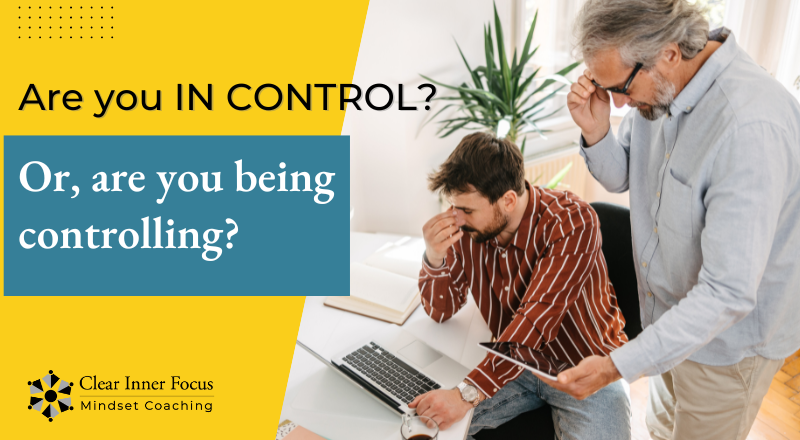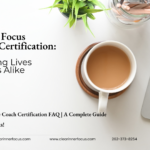
Control vs Controlling
Being in control requires making decisions that align with your values and goals, exercising patience, and taking responsibility for your thoughts, feelings, and actions. It’s about recognizing that you have the power to create the life you want, while also trusting in a higher power/the universe, and others to play a cooperative role.
On the other hand, being controlling involves trying to manipulate or dominate others or your environment to get what you want right away. This often comes from a place of fear, insecurity, or a need for power, and can harm both yourself and those around you.
To be in control without being controlling, here are some tips:
1. Be aware of your emotions and accept them.
Recognize that feeling frustrated, impatient, worried out of control does not feel good, but instead of suppressing or denying these emotions, allow them to flow through you without judgment or blame. When you breathe deeply and on purpose, without judgement, fear or blame, your emotions will move through you. You cannot control your emotions but you can control your decision to pause, breathe and process them before jumping into action.
2. Define and focus on your big-picture goal.
Creating lasting change takes time and collaboration with others. Stay focused on your ultimate vision. When the going gets tough, take a step back and revisit your goal. Then reengage with others, being open to new ideas and flexible in your approach.
3. Let go of things you can’t control and take charge of the things you can control.
- You can’t control your thoughts, but you can control the direction of your thinking. Talking yourself into solutions and kind, calming thoughts increases your effectiveness, energy and enjoyment of life.
- You cannot control your feelings, but you can control your response to them. By taking a few deep breaths and accepting them, they will pass and effective next steps will become clear.
- You cannot control other people, God, life, the weather, or politicians. The more you complain about things you can’t control, the more powerless you will feel.
- You cannot completely control mistakes from happening, but you can respond to mistakes with compassion and a willingness to learn and grow from them.
- You cannot control fearful thoughts, especially when they have gathered momentum and start anxiety producing images in your mind’s eye, but you can steer your focus to to land on solutions and imagine them happening.
4. Take care of yourself.
Self-care goes beyond getting enough sleep, eating healthily, and exercise. It requires knowing what you want and need to stay energized. Is it a relationship you need to be nurturing? Are there tasks hanging over your head? Are you exercising strategies to address challenges instead of ignoring them or complaining about them? Prioritizing your needs will ground your energy and help you not only feel more in control, patient, kind, cooperative and empowered as you work towards your goals, but support you in taking charge of the things you can control when things become chaotic.
By following these tips, you can focusing on taking charge of the things you can control rather than trying to control the uncontrollable, and you can create a more fulfilling and empowering life for yourself and those around you.





